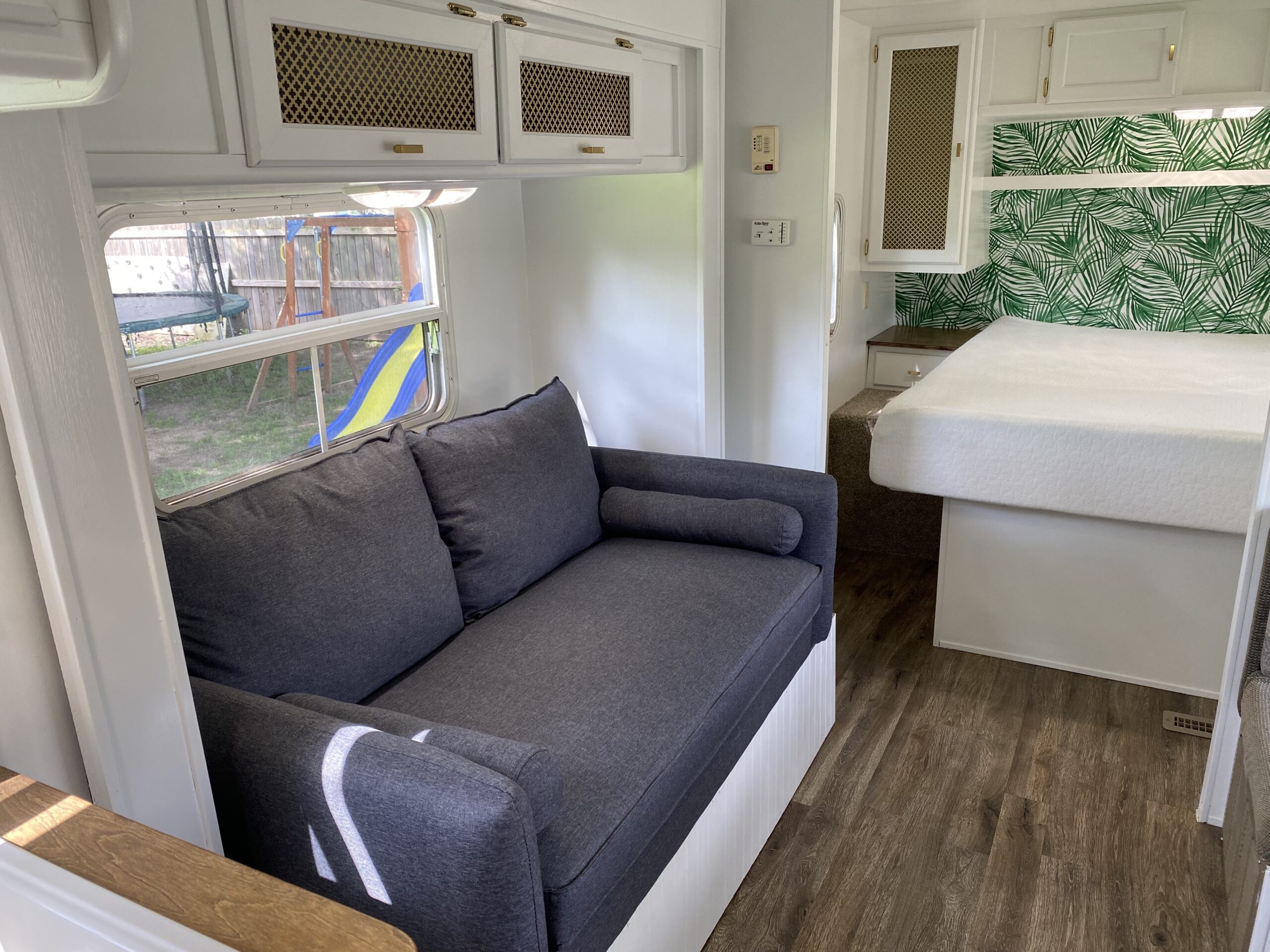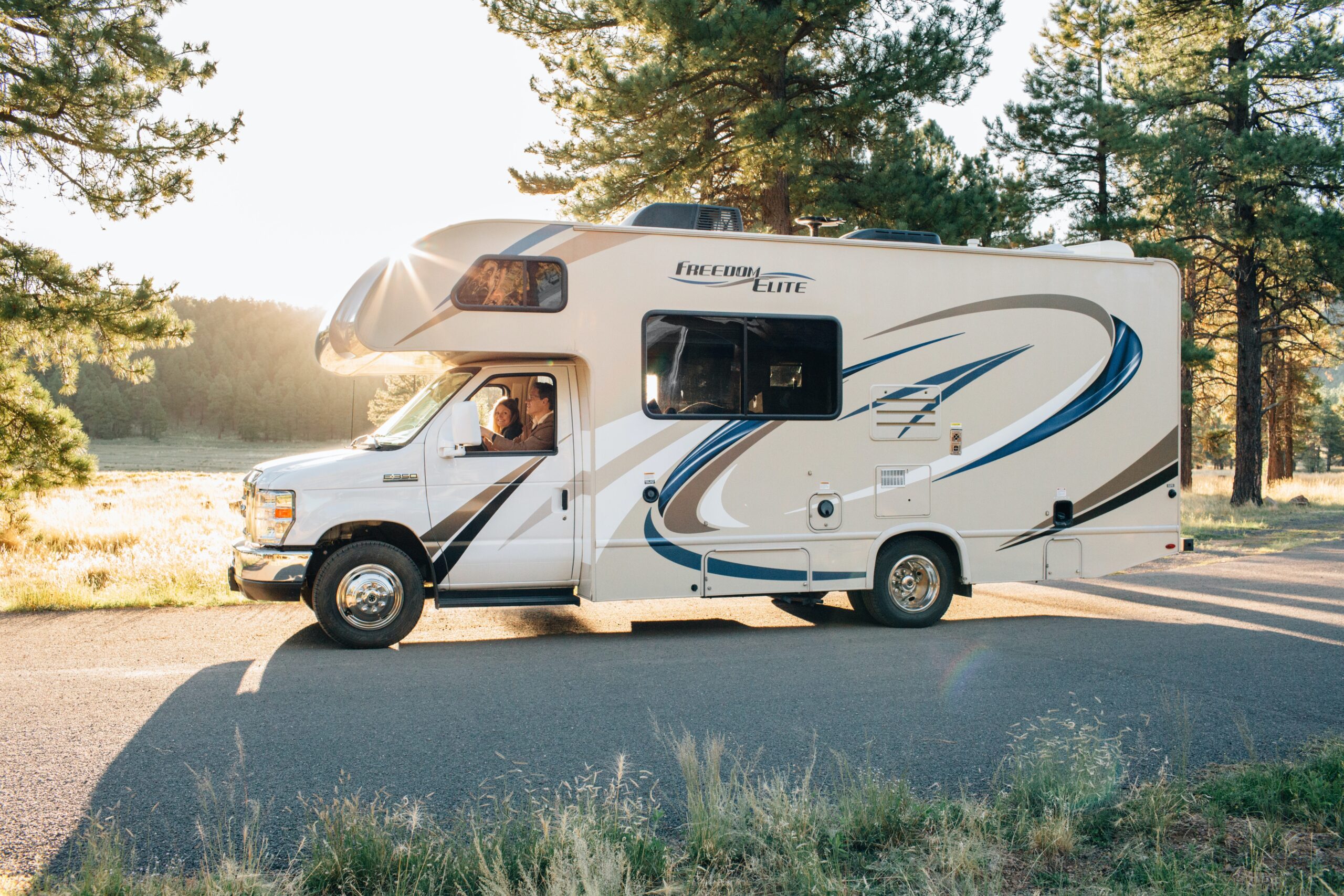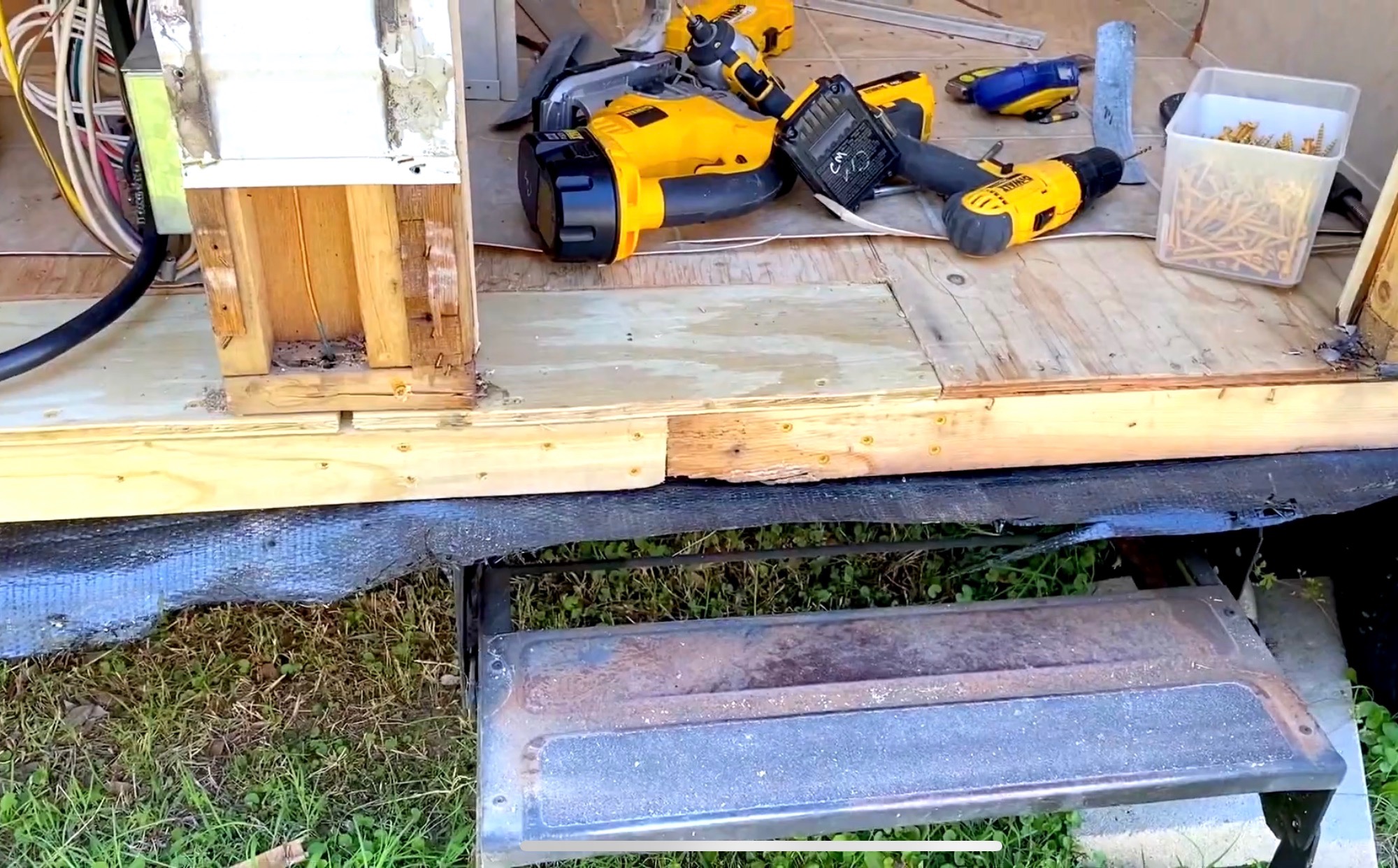There are many options for RV roof protection, and silicone is one of them.
You can use silicone on an RV roof. It is one of the most durable options as an RV roof coating. While it is also the most expensive, that additional cost may be well worth the investment. There are many things to consider when deciding on the best way to protect your RV roof.
The list seems endless when you are trying to figure out how to best care for your RV. Weighing the pros and cons of roof protectants can be especially tricky.
However, this article will be a deep dive into the pros and cons of using silicone on your roof, as well as a few other options out there.
Failing to take care of your roof properly can result in repairs that will break the bank, so read on to learn the best options for roof protectants.
Pros and Cons of Using Silicone on an RV Roof
Believe it or not, silicone is one of the more popular choices for RV roof coatings. In this section, we will go over some pros and cons as well as some specific recommendations.
Check out this table for a quick preview of the next section.
| Pros | Cons |
| Durable | Can be Expensive |
| One Coat Technology | Attracts Dirt |
| Water-Resistant | Difficult to Apply |
| UV Resistant | Slippery When Wet |
Pros
- Durability: One of the main things you want out of a roof protectant is for it to last. You will certainly get your money’s worth with silicone, as it is one of the most durable roof protectant materials available. Your roof is exposed to everything Mother Nature has to offer, from wind and rain to sleet and sun. You can rest easy knowing that your roof is protected from the elements with a silicone coat.
- Water-resistant: This is a huge benefit because your furniture and other valuables will be protected from accidental roof leaks in the event of a big rainstorm. Because RV roofs are typically flat, they are quite susceptible to water puddling, which poses quite a big risk for roof leaks. This is a great example of how you can save yourself headaches and frustration by proactively maintaining your roof.
- UV-resistant: This is another big perk of using a silicone coating on your roof. Your RV could potentially sit in the harsh sun for hours, day after day. Sunlight can have harsh effects on your roof, resulting in cracks or fading. Silicone coats will also reflect up to 90% of UV rays, keeping your RV cooler in the summer months and potentially saving you thousands in energy costs.
- One coat application: You will only have to apply one coat of silicone protectant to your RV roof. Unlike other options, applying only one coat will save you time, money, and effort.
Cons
- Attracts dirt: The biggest downfall of silicone by far is that it attracts dirt more easily than other materials. The solution to this is simple, though. You just have to be a little bit more diligent about cleaning it, as a build-up of dirt or debris will cause the silicone to lose its reflective properties.
- Can be expensive: Silicone is one of the more expensive coating options for your RV roof. If you plan on applying it yourself, a 4.75 gallon (18 liters) bucket could cost between $150 and $250, which will cover about 320 square feet (29.7 square meters) of the roof. However, keep in mind that this is an investment and will save you money in maintenance, repairs, and energy costs in the long run.
- Slippery when wet: Silicone can be extremely slippery when it gets wet. You may be wondering why this is relevant in an article about roof coatings. The main reason you would want to keep this in mind is if you wanted to include some sort of deck or other usable space on your roof. Otherwise, this may not apply to you.
- Difficult to apply: Silicone is a moisture-cured product, which means it uses liquid from the air to cure itself, resulting in it drying very quickly. While this is beneficial in many ways, it can make it difficult to apply. Users must take care not to leave it exposed in the bucket for too long, or it will form a skin. If you plan on doing it yourself, watch this three-minute video for additional information on applying a silicone coating to your roof:
Recommended Roof Protectants
Henry’s Company is a solid option for silicone roof protectants. This Five Gallon Tropicool offers extreme durability, permanent puddling resistance, and superior sealing for maximum energy savings.
No products found.
It takes only a few minutes to fully bond to your roof, so roof protection is just right around the corner.
For a more affordable option, you could also check out Henry Elastomeric coating, offering some of the same perks as the recommendation above.
No products found.
What Can You Use Other Than Silicone?
You might be wondering if there are options other than silicone for your roof protectant. There sure are!
Some other popular options include acrylic and urethane.
Acrylic is the most affordable roof coating option and quite common, but it is not nearly as durable or long-lasting as silicone. It also takes quite a bit of time and effort to apply.
It may be a good option if you struggle with water leaks, as it is also water-resistant and prevents puddling.
Urethane is the other most common option and is almost as durable as silicone.
Urethane will be a good choice if your RV is susceptible to branches or other debris, as it is great at protecting against scrapes and scratches.
However, a big downside to urethane is that it is a big-time commitment because it takes two or more coats to be effective.
Is a Roof Protectant Worth It?
The roof might not be the first thing that comes to mind when you are thinking about RV maintenance.
However, it definitely should be. Despite being one of the most important parts of your RV, it can also be the most neglected.
With all of this in mind, you may be wondering if the investment in a roof protectant is worth it. The answer is yes!
Roof protectants or sealants will protect the overall structure of your roof, preventing cracks and saving you money in the long run by avoiding costly repairs.
They also help regulate the temperature, reduce wear and tear, and help you save energy.
Final Thoughts
Now, do you think that the pros outweigh the cons of a silicone roof protectant?
To recap, you will likely spend more upfront on silicone than other materials, but the durability, UV, and water resistance make silicone an excellent choice for any RV owner.
You will save money on repairs, energy use, and increase the overall longevity of your RV.
Navigating all of the decisions for RV maintenance can be overwhelming.
If you can get on board with making the financial investment upfront, then a silicone coating may be the right product for you.
I hope this article was able to offer you some insight and clarity.






